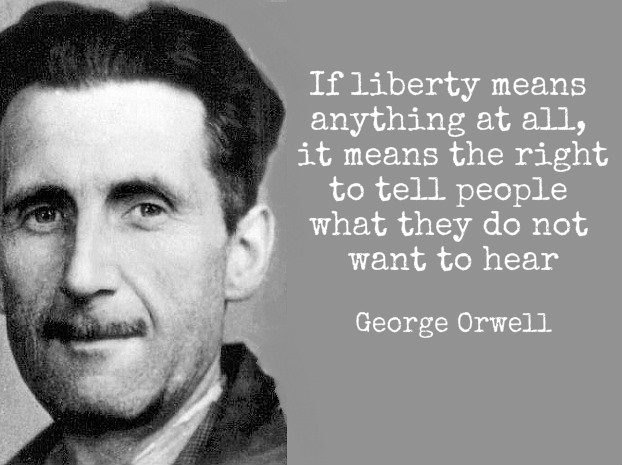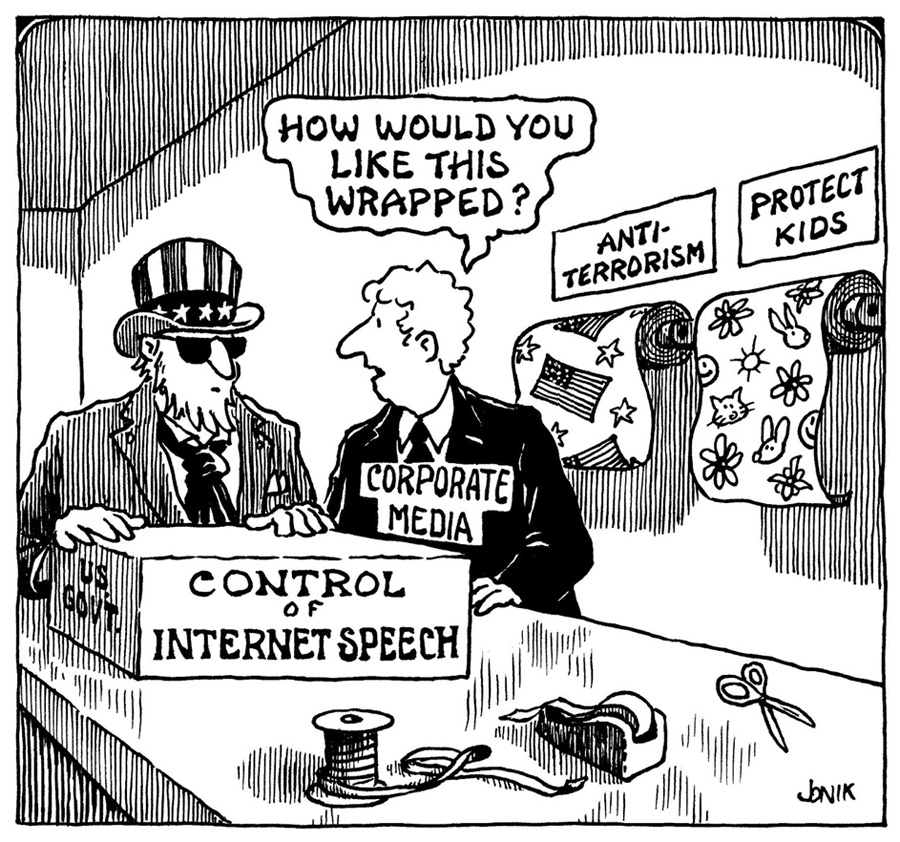Final Blog Post: Freedom of Speech or Freedom of Hate?
hollyothelia.castro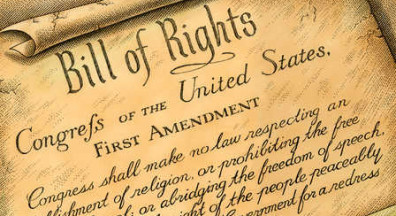
Freedom of speech is one of the most debatable amendments of the United States Constitution. Questions over what freedom of speech protects, where hate speech falls in lines of the First Amendment and what implements the use of censorship are often controversial topics. One thing that is certain is freedom of speech has become less used for its intended purposes than those who ratified it in 1791. The stance on hate speech is commonly argued because what one sees as hurtful, another may deem appropriate. Censorship is often debated to be an injustice rather than protecting the people as well.
When freedom of speech is often thought of, many just think about it as another amendment in the U.S. Constitution. Many neglect to remember just how important it is to be able to have a voice and not have the government stop you from saying what you feel. In a recent study, a survey was conducted to see who found freedom of speech to be important in society today. The study found that freedom of speech was viewed positively in relation to intellect, individualism and separate knowing while it was viewed negatively in relation to hate speech and liberalism (Downs & Cowan, 2012).
When the first amendment was ratified, the argument of free speech was meant to protect those who engaged in debate for the common good of the people. However, now we see many cases of freedom of speech being used to cyber bully or throw racial slurs at people. One common occurrence where hate speech is spewed is on college campuses. The irony is that college campuses are where people become educated and develop vast knowledge that encourages them to voice their opinions on a respectable platform. However, during times of protest or public speaking, others will take this opportunity not to support their fellow peers but slander and throw vicious attacks on the content they are presenting. Hate speech has been a tough problem to solve as it mainly targets oppressed groups. There are those who argue that since hate speech is targeting an oppressed group, it would create an inconsistency in justice as it puts an oppressed group above “other groups”.
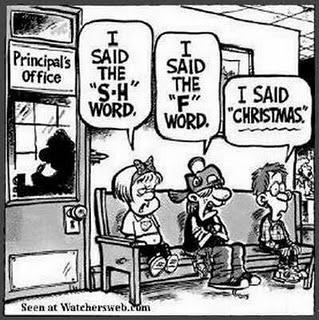
This is where censorship becomes a common alternative to acts that violate or harm free speech. Censorship is commonly used within the media and noticed for the protection that it gives children from seeing unnecessary content. There are also those who argue against censorship stating that it does not prevent harm, but sets children up for unrealistic expectations of the world when they become adults. Hate speech and pornography are common debatable examples of what should be censored. In a recent study, older individuals were against censorship unless it was to censor pornography, which they then believed required government regulation. Those who obtained education at the higher level (after high school) were against censorship of hate speech and pornography. Women also were more likely to support censorship of hate speech and pornography than men.
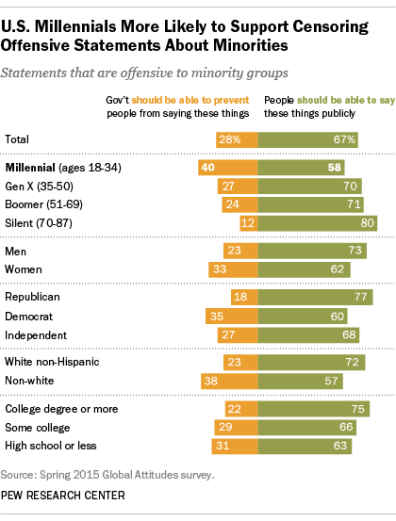
With freedom of speech, there are many controversial topics, solutions and overall opinions about what should or should not be done. Freedom of speech was most commonly used for a buffer amongst debates. However, while still used for the common good of the people, there are more moving parts into what constitutes free speech or not. The conclusion can be made that free speech is always changing and the idea of censorship is more commonly viewed as unnecessary amongst people. There are many factors that go into considering how justifiable hate speech and censorship are such as education, gender, age, and political views. Freedom of speech has become more commonly a freedom of hate as this use of a free platform has been used to cause harm than obtain a common good.
Images:
http://www.pewresearch.org/files/2015/11/FT_15.11.19_speech.png
http://images.sodahead.com/polls/000879091/censorship_xlarge.jpeg
http://police.ucsc.edu/images/first-amendment-banner.jpg?t=0
References:
Downs, D., & Cowan, G. (2012). Predicting the Importance of Freedom of Speech and the Perceived Harm of Hate Speech. Journal of Applied Social Psychology, 42(6), 1353-1375.
Hatfield, K., Schafer, K., & Stroup, K. (2005). A Dialogic Approach to Combating Hate Speech on College Campuses. Atlantic Journal of Communication, 41-55.
Lambe, J. (2004). Who Wants to Censor Pornography and Hate Speech? Mass Communication and Society, 7(3), 279-299.
Suedfeld, P., Steel, G., & Schmidt, P. (1994). Political Ideology and Attitudes Toward Censorship. Journal of Applied Social Psychology, 24(9), 765-781.
